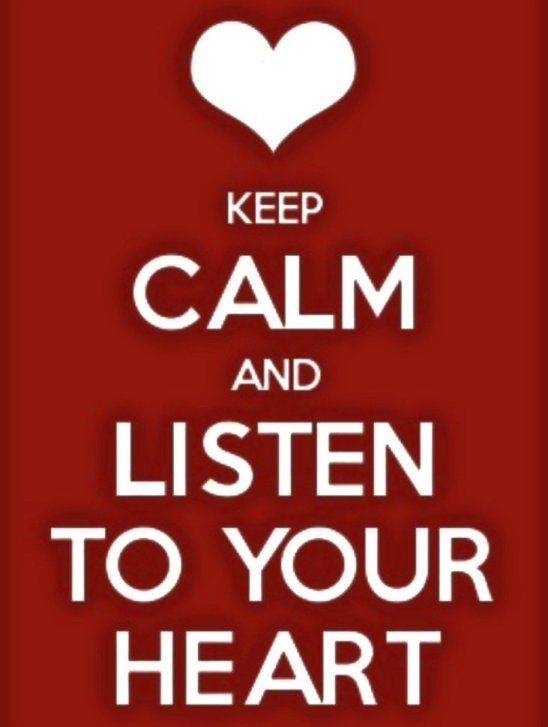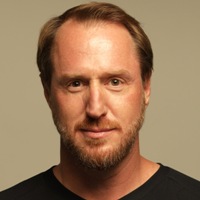
Advice to my 30-year-old self.
After looking in the mirror, I wrote a series of articles focused on giving advice to myself as a 30-year-old, knowing what I know now. The first was “2 Words of Advice that can help us at Every Stage of Life and focused on this advice: “know thyself.”
The second was “How to Practice Living in Truth.”
This article builds upon the previous two. The last ended with a journaling exercise; check it out and then read on.
Our goal when using that exercise was to get better at paying attention to our body—not what we’re thinking, but how we actually feel: expansive, neutral, or contracted in relation to everything that we do.
This is the path toward listening to our hearts.
Our body tells us everything that we need to know. By bringing our attention to our emotive landscape, we are learning to turn off our analytical mind to get in touch with what’s true for us at the deepest level. If we practiced, we should now be accustomed to dropping into our bodies better than before.
We’ll now dive into why that’s important and how we can use this skill more deliberately to make both simple and complex decisions as we continue the process of living in alignment with our internal truth over what family, friends, and others expect of us.
We can never be who everyone else wants us to be.
Even if we wanted to dedicate our whole lives to serving the world or others, we wouldn’t be able to do either in an honest way until we operate from a source of knowing our internal truth, the “why” behind everything that we do, and how we actually feel about it apart from friends, family, religious institutions, nations, or the world—which is why we did the journaling practice.
What’s outside of us pales in comparison to what’s inside of us.
The outcome we’re ultimately seeking is to listen to our hearts by focusing on what makes us feel expansive versus contracted and to then let go of anything in our lives that leaves us feeling negative or contracted. In order to be, and to let go, we have to identify what doesn’t serve our best interests.
Over the next week, the objective is to stop, sit quietly, and breathe slowly while experiencing our bodies every time we have to make a significant decision.
We don’t need to do this while buying groceries, but we will do it when we’re trying to decide whether or not we want to meet up with specific people, engage in activities, or determine what to do next when making life decisions in relation to our love life, career, and spiritual practices.
Our bodies give us all of the information that we need when we’re quiet and aware enough to feel our emotions and bodily sensations when considering the decisions that we might make.
This may feel extremely uncomfortable to do for some of us, but that’s because most of us in America have learned to emphasize thinking over feeling. Emotions provide us with a shortcut to our truth. Overanalyzing decisions just spins us into a tizzy, which can lead to indecisiveness that can then become anxiety or depression, especially if it persists.
If we do not get to know ourselves in the absence of the analytical mind, or external (familial, cultural, or societal) expectations that seemingly govern our choices, we’ll continuously feel lost, frustrated, and out of alignment with what is real and true for our life journey.
If we found it difficult to tap into our bodies when doing the journaling exercise, both meditation and yoga are powerful practices that can assist us with getting in touch with our bodies, our emotions, our hearts, or the truth within us.
If meditation or yoga feels like too much, just sit quietly and pay attention to the body, but check out the above links on meditation and yoga; they’ll make it less intimidating if we’ve never done either.
When we’re trying to decide what to keep or let go of in our lives, we don’t actually need to think about anything; our heads get in the way of our truth. The mind seeks to look at decisions from multiple mental angles, attach to ideas, and then rationalize each, but all we really need to know is how the decision makes us feel.
Imagine for a moment that we’re trying to decide if we should end a job, friendship, or a relationship so that we can pursue our dream career, find new friends, or our true love.
When it comes time to make a decision about ending a job, or anything in our lives for that matter, including our current career trajectory, friendships, or relationships, we can always rely on our heart, emotions, and our intuitive nature from the outset.
If we want to dive more deeply, read Blink by Malcolm Gladwell. This next practice that I outline helps us to use what Gladwell referred to as “thin-slicing, filtering the very few factors that matter from an overwhelming number of variables.”
We can do this exercise in relation to any decision we’re trying to make. The better we get at doing this, the more easily we’ll be able to do it in the blink of an eye.
Start by looking at our written lists that we created after the first article in this series. Revisit the honest “why” behind everything we’re doing. Now choose one of the items and revisit our journal that we created after the second article to see if we felt expansive, neutral, or contracted to practice what follows.
I’m going to use changing careers to illustrate.
Sit quietly until we’re fully relaxed. Once relaxed, hold our heads down as if trying to place our chin on our chest—stay relaxed by simply dropping the head down as if we’re trying to look at our heart. Do not strain or force anything; the goal is to simply connect with our bodies. Pay attention to how the body feels once relaxed and in position. This is our baseline.
Now, think of the happiest moment in our life. How does it feel in our body to think about the happiest moment in our life? Register how it feels, don’t think about it; just recognize how expansive it feels. Now, return to our body and our baseline and choose something on our list.
Once relaxed, we’ll need to ask a friend (or anyone) to ask us a question related to the decision we’re trying to make in two ways without knowing which will be asked first. If there’s no one around, we can ask ourselves the questions. It’s best to have someone else do it, though, and to not know which question will be asked first. Do not discuss it with the person asking the question.
Using the example of choosing another career trajectory the two questions we can ask are: 1) should I end my current job, and 2) should I stay with my current job? Keep the questions as simple as possible—clarity is more likely when we have someone asking simple questions.
As soon as the question is asked, we shouldn’t think about the question; we should immediately pay attention to how we feel about the question asked. All we’re doing is tracking how we actually feel. The way to tell which answer is truest is to experience how the body feels. Whichever question is more positive and expansive versus negative and contracting is most likely aligned with our truth.
After the question is asked, if our body feels contracted, anxious, stiff, or uncomfortable, then it’s probably not the best decision at that point in time—let go.
If our body feels expansive, open, comfortable, elated, or calm after the question is asked, then that’s most likely our truth—stick with that. If the response is muddled, that’s a sign it’s unclear, and probably not true for us (yet).
Don’t overcomplicate the exercise. We’ll notice the difference from our baseline in our bodies immediately upon having the questions asked. If we start thinking or analyzing the results, instead of how we’re feeling in the moment, we’re already allowing the mind to take over and rationalize a different choice, which moves us away from our truth. Whatever the result, honor it, no matter what.
Do not judge the outcome; that’s the mind trying to hijack our truth. We may want to discuss or analyze the decision, but that’s only going to create anxiety because all we’re actually doing is resisting the truth revealed. Ditch the judgement—our bodies know what we need.
Once we know the truth, honor it no matter how hard it might be to do so in the moment—this is self-care.
Over the next week, do this with everything on our list and then permanently let go of one thing that makes us feel negative and contracted. We are likely to experience a range of emotions after making the choice—feel them, but stick with the decision, stick with our hearts. I promise it’ll pay off.
Remember, letting go shouldn’t be overcomplicated.
If our body made it clear that our current career isn’t right for us, just let go of the idea that we have to stay in our current career and give ourselves permission to begin identifying one that is aligned with something on our list that made us feel expansive. The goal is to get unstuck from not knowing what to do and to open the space for change.
For example, if we love art and we noted that we felt expansive when engaged in art, start identifying opportunities to transition into the field of art, even if it’s volunteering at a museum or taking a different position in the field of art, even if it’s below your current pay. The money will follow.
In order to continue getting to know thyself, we have to be willing to give up everything we thought we knew about ourselves and what we thought we wanted or needed.
The problem is that we’re often so blinded by conditioning that we do not know where the world ends and we begin; practicing this exercise will help us begin separating out our internal truth from external lies.
Eventually, we’ll be experts at listening to our hearts.
~










Read 1 comment and reply